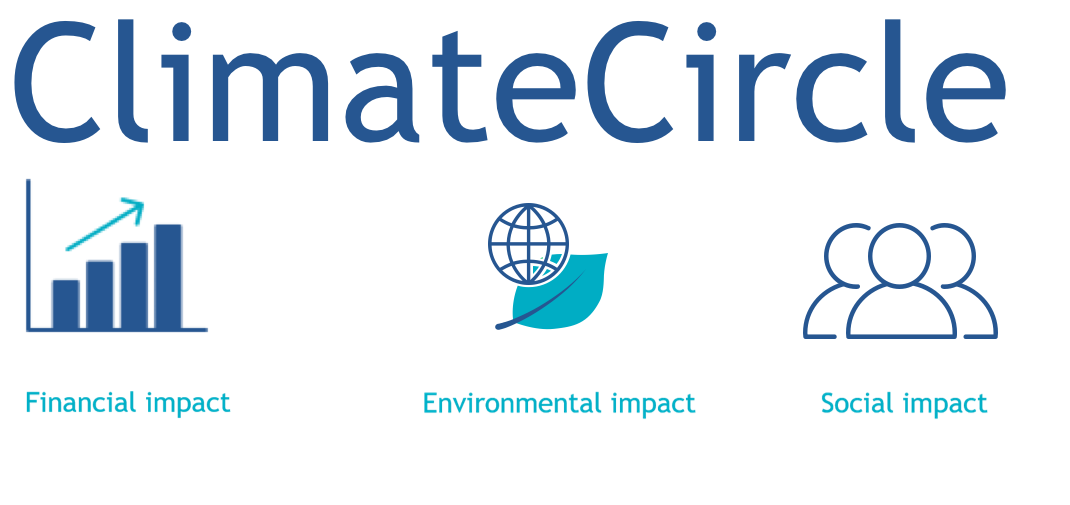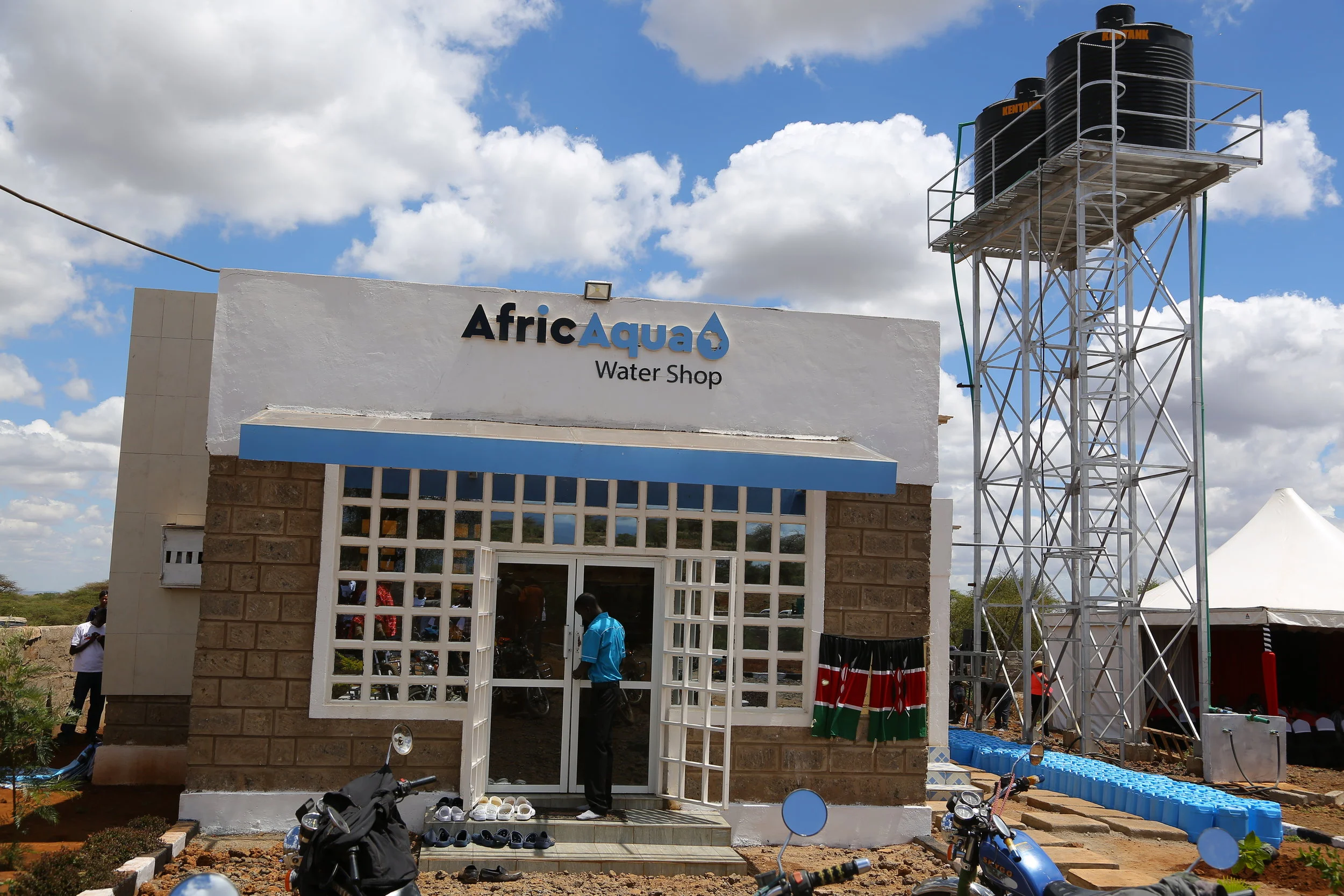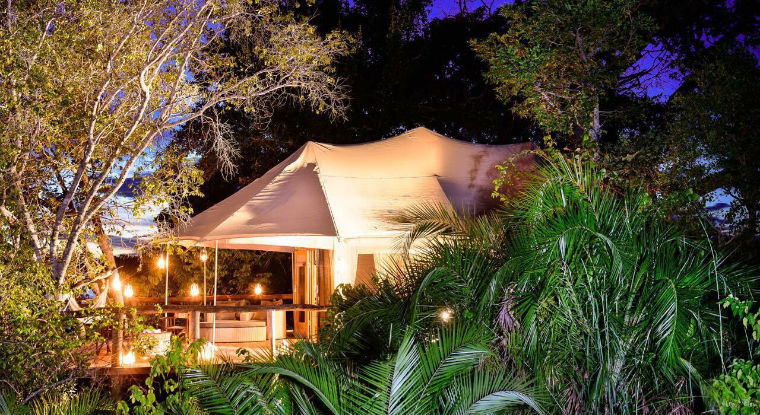Source: Ellen MacArthur Foundation, SUN, and McKinsey Center for Business and Environment; Drawing from Braungart & McDonough, Cradle to Cradle (C2C).
In 2016 Africa Funded (Climate Circle) was approached by the Toilet Board Coalition to identify opportunities to scale sanitation-related business initiatives in Africa, Asia and Latin America. Toilet Board Coalition is a platform of corporates aiming at accelerating business in sanitation initiated by Unilever, Kimberly-Clark, LIXIL and Firmenich. Twenty-four sanitation-oriented companies were screened using the circular economy models to assess their readiness, contextual challenges and opportunities to scale. This screening process, along with looking at the prospective fit with the members of the Toilet Board resulted in the selection of several entrepreneurs to join the Toilet Board Accelerator. We learned a great deal along the way, and have been able to draw some conclusions and useful prescriptions about how best to approach opportunities in the field of sanitation in developing countries. The purpose of this article is to highlight some of the main conclusions for the benefit of additional stakeholders in the sector that are undertaking similar activities.
{This research has been coordinated by Saskia Reus-Makkink, Founder of Africa Funded/Climate Circle and Manager of Aqua for All seed funding accelerator programs. Team members: Christiaan Quellhorst (Senior Business Expert Africa Funded), Jan Spit and Jacqueline Barendse (sanitation experts WASTE) who provided expert insight.}
Sanitation in the circular economy: a study by Toilet Board Coalition
What do we mean by the ‘circular economy’? The concept of the circular economy is fairly simple – what’s considered waste for one (industry) is treasure to another (industry). This is absolutely the case in the sanitation business: toilet waste is a resource with potential commercial value. Sanitation is an industry with significant potential for waste to be transformed from an undesirable expense into a positive contribution in a commercially viable system, generating income, and improving health and environmental conditions.
The analysis of current business models in turning faecal sludge into valuable resources generated input for two separate reports published by the Toilet Board. One of the reports, entitled “Sanitation in the Circular Economy”, uses the circular economy approach to ‘shine a light’ on sanitation as a significant and largely untapped business opportunity. Hereunder a few highlights of this report.
In this study, various stakeholders were surveyed: SMEs (small/medium-sized enterprises) involved in sanitation across low income markets, experts from multinational corporations, academics, and specialists from across the “waste” management value chain. They were asked to respond to the following question:
Can demand for products derived from toilet waste become strong enough to create self-sustaining, commercially viable sanitation businesses, reducing dependence on public and aid funding, as well as reducing health costs?
Central questions addressed in this study:
· What products or materials of value can be upcycled from toilet resources?
· Are there scalable business models to deliver sustainable supply of these products to the market?
· Is there commercial interest and demand from large industrial operations to become buyers into the system?
Key Findings
The initial inquiry into Sanitation in the Circular Economy with entrepreneurs operating in low income markets, academics, and multinational corporations, has produced six key conclusions to be further explored:
1. Toilet resources are a major part of the bio-cycle that are mostly unexploited
2. The Circular Economy could transform sanitation from a costly service to a more self-sustaining and value adding system of resources
3. There are 3 Circular Economy cycles for sanitation
4. There are renewable resources available for corporate supply chains today
5. There are innovative applications for industry in the future
6. There are significant leapfrog opportunities for low income economies
Toilet waste has value. Here are a few of the potential resources which can be produced from toilet waste:
· Green energy: mixed with other biological resources waste can provide a green energy supply in the form of biogas, liquid, or solid fuel, which can be used directly or converted into electricity and heat.
· Agricultural products: There are rich possibilities for waste to be used in agricultural products – compost, organic fertilizers, and soil conditioners.
· Potable/Grey water: Fecal matter contains up to 75% water, and urine is 95% water. New technologies are being developed extracting the water, filtering it and producing either potable or processed grey water for use in agriculture, aquaculture or water intensive industrial operations.
· New applications can use material derived from toilet resources to produce innovative new products and raw materials for use in production of animal feed, plastics, cosmetics, pharmaceuticals. For example, new applications are being developed to neutralize pathogens in fecal sludge.
· Source of information & health data: waste can be analyzed to provide useful information for health interventions, disease prevention and control of public health.
Further observations from this study:
· Applying the circular economy model in new contexts usually involves reconfiguring products, supply chains, and business models. An integrated approach to toilet resources (formerly “waste”) should maximize the use of the bio-cycle within the overall economy.
A biological resource system is not only valuable in itself, but enables innovation in the use of biological substitutes for a wide range of plastics/products.
· Circular Economy business models offer additional sustainability, because one is using something that was previously wasted. Suppliers may be able to providing ongoing support services rather than making a one-time sale. The models are circular because the supplier is to support long product life, and take responsibility for product at end-of-life. Note that in most western countries sanitation systems are funded by taxes and not profitable businesses by themselves.
Opportunities for multinational corporations and SME’s
We’ve mentioned some of the potential products to be derived from toilet waste, but how is it attractive for investors? In what form? Who can benefit or profit?
The Toilet Board study sees ‘opportunity spaces’ for multinational corporations to invest in sanitation business in order to gain access to a reliable source of raw materials, the volume of which is predictably tied to population (growth). In this sense, toilet waste is a renewable resource to feed into the supply chains of global and emerging market operations for certain products (such as in agriculture, and greywater industrial use). Further, we expect demand for toilet waste to grow as it is used in the R&D of new bio-cycle products which will also require toilet ‘resources’.
For SMEs, the opportunities are to be found in building local holistic biological “waste”/resource systems. This involves the whole chain - waste collection and treatment, (including addressing currently unmet needs, such as adequate provision and maintenance of toilets), innovation in the creation of biological substitutes in existing products, the creation of new products derived from toilet resources, and producing locally-relevant agricultural products, water and energy.
We hope to have inspired you to dig deeper into this study. For the complete report “Sanitation in the Circular Economy” please click here.



















